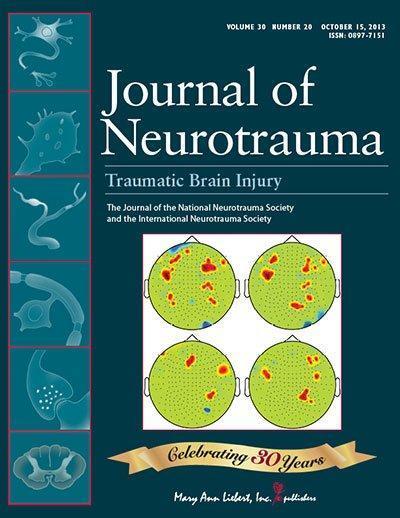New Rochelle, NY, October 17, 2013 -- An individual's recovery months after a traumatic brain injury (TBI) is difficult to predict, and some of the variability in outcomes may be due to genetic differences. Subtle variations in genes that regulate a person's inflammatory response to injury can impact clinical outcomes in TBI, according to a new study published in Journal of Neurotrauma, a peer-reviewed journal from Mary Ann Liebert, Inc., publishers. The article is available free on the Journal of Neurotrauma website at http://www.liebertpub.com/neu.
In the article "Cytokine Gene Polymorphisms and Outcome after Traumatic Brain Injury," (http://online.liebertpub.com/doi/full/10.1089/neu.2012.2792) Ryan Waters and coauthors from University Hospital Southampton, University of Edinburgh, University of Glasgow, School of Social and Community Medicine, Bristol, and Southampton General Hospital, UK, explore natural variations between individuals in the genes that encode cytokines. These signaling chemicals play an important role in neuroinflammation, which is a key part of the secondary response to head injury. Genetic variability in cytokine genes can impact the magnitude and duration of an individual's neuroinflammatory response to TBI, affecting long-term repair processes and recovery.

Journal of Neurotrauma is an authoritative peer-reviewed journal published 24 times per year in print and online that focuses on the latest advances in the clinical and laboratory investigation of traumatic brain and spinal cord injury.
(Photo Credit: ©2013 Mary Ann Liebert, Inc., publishers)
John T. Povlishock, PhD, Editor-in-Chief of Journal of Neurotrauma and Professor, VCU Neuroscience Center, Medical College of Virginia, Richmond notes, "This study analyzes a relatively large cohort of patients in whom novel genetic associations were found and correlated with outcome. These studies are considered particularly important in that they join with emerging information in the field that tumor necrosis factor alpha (TNF-alpha) expression is associated with unfavorable outcome and thus, may be a target of future studies focusing on the treatment of traumatic brain injury."